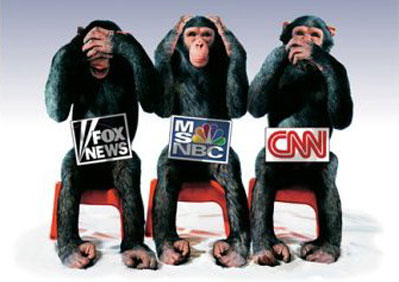
Believe it or not, most people under the age of 40 don't even know what the current account is, much less how dangerous carrying a deficit is to our personal safety and the safety of our country. The current account is very simply the difference between exports and imports into our country. In other words, when a country exports more than it imports, the country has a positive current account, or a net export. When its imports exceed its exports, the opposite is true.
Most people don't pay a lot of attention to where a good is produced, assembled and its parts originate. However, it is a massively important factor to the overall safety of a Nation. In fact, Bismarck was qouted as stating, "Free trade is the weapon of the strongest (Makers of Modern Strategy, from Machiavelli to the Nuclear Age pg 223)." When a good is traded, or exported from the producing nation for payment, a number of crucial items are captured, most significantly 1. Greater Purchasing Power for their Currency, 2. Jobs, 3. Production Capacity, 4. Control of Natural Resources, 5. The Deflating of the Purchasing Countries Currency, 5. A General Tactical Strengthening of their Position in the world.
First, the purchase of a widget by a citizen of the United States from a foreign country, for our example Foreignland, causes a boost to the currency of Foreignland. This boost is caused because the US citizen is foregiong dollars for a good. Since that good was originated in a foreign country, the dollars received as payment are traded for the currency of Foreignland to compensate its workers, managers and profit margins. This trading of dollars for Foreignland currency causes the demand for dollars to fall and the resulting demand for Foreignland currency to rise. This causes an appreciation in the currency of Foreignland relative to the dollar and thus gives residents of Foreignland greater purchasing power for goods in dollars (real estate, automobiles, clothing or DVDs). In a functioning free market trade, the appreciation in the currency of Foreignland from goods sold to the United States would eventually lead to a reverse in the money flow as dollars become cheap and therefore the jobs, manufacturing, and goods would soon be produced in the United States as it is now more cost effective to build those goods in the US.
No big deal right? Right. Except, once a country enjoys the jobs, production capacity, control of natural resources, and general tactical strength over the purchsing country they are reluctant to allow the natural reversion to occur. Instead, the exporting country does everything in its power to hold its currency low, thus capturing all the dollars from the trade, as well as, the jobs, natural resources, and tactical strength. A perfect example is China. China refuses to allow their currency to appreciate by refusing to allow its currency to be freely traded or exported out of the country. China represses the market further by demanding that any import or foreign corporation be partnered with a Chinese firm with no less than 50% ownership in order to do business within the country. This is neither a dishonest or dishonorable action, it is statesmanship, albeit at the expense of industrialized countries such as the U.S..
That said, such behavior is not conducive to a free market. It creates a manipulated market with the majority of the societal rewards of trade favoring the country willing to assert itself. The sad reality is that the United States over the passed two decades has taken measured steps to eradicate any governmental regulation on trade so as to proliferate such results. Whether a naive pipe dream of free marketeers, a calculated manipulation by the upper 3% of the United States population to enrich themselves off of artificially underpriced labor, or pure laziness this lack of oversight by the United States as an entity have allowed trade to hinder its citizens rather than enrich them.
Worst yet, because of the number of U.S. dollars the Chinese hold in reserve, China is a significant military threat to the United States and its empire. Twenty years ago, China had no capability to manuever in the world, no economic might to purchase modern military technology, and was little more than a decentralized region of impoverished people. China certainly was not militarily ambitous or sophisticated enough to shoot down United States' satellites as a show of force (which happened in the summer of 2008). The enrichment from the dollars of U.S. citizens, gave the Chinese this capability. The dollars have literally built a formidable threat on the global scene with its own identity, cares, interests and ambitions. With every additional dollar, they grow relatively stronger and the United States relatively weaker.
Jobs, are the second great benefit of being a net exporter. These jobs represent a standard of living and the general contentness of a population. It is a given that a population without work is one which is without stability. Ghandi once stated that, "Violence occurs when there is wealth and no work." Many others have highlighted that there is a general tendancy of the classes to war when the working class of that society is not sustainable in nature. The great growth of the United States from 1941-1990 was the result of a vibrant manufacturing base and an economy where those willing to work were always afforded that oppurtunity. Without the abundance and demand for work, a society will begin to destroy itself from within. Therefore, it is not an exaggeration to state that the ability to import unilaterily into a country, is the ability to poison it.
An importing country becomes enslaved by the exporting country as its population is literally dependant on those imports so that they can resell them for industry (see article "The Float," this blog) and consume them for their sustenance. The exporter, thus, has the capablity to use their goods as a weapon to kill industries dependant on them. This type of attack by trade is an efficient means of asserting one's sovereignty as it devastates the morale of a target nation without having to spend military capital.
Production Capacity follows the same logic as jobs, except that it deals directly with materials instead of human capital. A country's ability to produce atrophes as its production dwindles. Very simply, when a country slows production it sheds equipment, factories, supplies and fixtures used to produce goods. Over a prolonged period, that shedding results in a lack of capacity to "ramp up" if necessary. Manufacturing is massively important in war as supplies and the ability to produce weapons, tanks, carriers and general supplies is a major factor in winning or losing. If a country forgoes capacity in times of peace, a great possibility exists that the lead time to ramp up for war becomes prohibitively long. Least we forget, the American automotive industry were the heroes of WWII as they answered the call of President Roosevelt to build sufficient planes and tanks to forge an attack against the Nazis.
It could not be more eloquently put than how Alexander Hamilton wrote it in his text book,
Report on Manufacturers, the goal is to promote such manufactures....
"
as will tend to render the United States independant of foreign nations for military and other essential supplies. [N]ot only the wealth but the independence and security of a country appear to be materially connected with the prosperity of manufactures. Every nation, with a view to those great objects, ought to endeavor to possess within itself, all the essentials of national supply. These comprise the means of subsistence, habitation, clothing and defense."
The general concept Hamilton proved was that free and unmanaged trade was a concept that only could succeed if somone was naive enough to believe war was no longer a real threat to the Nation. Economists and business leaders alike refuse to acknowledge this reality as it does not fit easily into their models of measuring profit and loss. Common sense nonetheless would assert that being conquered would trump any competing economic interest or argument asserted from that community. Thus, the balancing act between the benefits of trading between two parties of differing competitive advantages and protecting the soundness of the Nation is the operative standard of judging the best course of policy for a Nation.
Strangely enough, the father of free market capitalism, Adam Smith in his Wealth of Nations maintained,"the first duty of the sovereign was that of protecting the society from violence and invasion of other independent societies." As war was inherent in the understanding of any concept during the late 1700s, Smith was in favor of governmental regulation of international trade when that trade reached a level that was detrimental to the Nation's ability to protect itself in the world. It was Smith who said, "defense is of much more importance than opulence." After all, what is the point of trading if the end result is a net loss of its a Nation's sovereignty.
Control of Natural Resources is along the same lines of production capacity, but with respect to a specified class of items. Over the passed seven years the United States has experienced a tremendous run-up in the costs of natural resources. A significant reason for this run-up, aside from the speculation and margin buying by Wall Street (the reason for the 2007 commodity bubble), is the idustrialization of third world countries. Countries, such as India, China, Vietnam and South Korea had very little demand for oil, gasoline, heating oil, lumber, steel and concrete in the past; however, now due to increased demand for goods produced in these countries a need has been created. This need combined with the general depreciation of the US dollar, as a result of being a net importer of goods, has sufficiently lowered the standard of living of Americans in that they must pay more for essential items leaving less discretionary income available.
Further, this flow of limited natural resources to net exporters to the United States puts the US at the mercy of such countries in a time of conflict or disaster as they control the flow of commodities. For example, how would the United States react if attacked by an independent sovereign and in need of natural resources such as oil, steel, sugar and rubber, but the costs associated with getting those goods was extremely expensive because of a demand in China. As a result, the United States looks to borrow or negotiate with the Chinese to acquire these items. In this example, assume the Chinese find an alliance with the attacking sovereignty more beneficial than one with the U.S. as the U.S. is vulnerable and without recourse. What would the United States do? Attack? No, we don't have the necessary resources to sustain such an attack. Maybe we could appeal to the business community who so profited off this trade arrangement, would they freely finance the war? Could they even if they wanted to?
Add all the above together and one can easily surmise why a net exporter will gain tactical advantage in the world. Net exporters very simply hold the power to destabilize the importing country from both the interior and the exterior. Eliminating social stability by devaluing the importing country's currency, eroding their substantive work force (substantive jobs are those that actually create a good, see The Float, on this blog), depleting their ability to acquire natural resources, reducing their capacity to wage war and capturing the importing country's reserves of currency all serve to empower the net exporter in the long run. These factors in addition to the forging of new trade and defense alliances with other sovereigns, as the net exporter grows in wealth and stature in the world, create an identity and ability to achieve its own ambitions.
Once strong enough, the United States can only appeal to the newly formed industrialized nation's sense of morality and fair play to achieve fair terms in dealings with them. This situation is the result of a comedy of errors by the stronger country to allow this situation to occur. During the strongest and most prolific years of the Roman Empire, independent sovereigns were reduced in stature to client states of the Roman Empire. These client states were strong enough to withstand their own populations from revolting and strong enough to withstand attacks from nomadic tribes , but never strong enough to pose a threat to the Empire itself. In exchange for surrendering their sovereignty, these client states received a better standard of living and support in protecting their lands from outside attackers. For the citizens of a client state being absorbed under the influence of Rome was a "good deal." They enjoyed peace, relatively stable commerce and a stable life. That said, ambition and ideas of becoming independent were not possible. Its not immoral or dishonest, it is responsible use of power for the greatest good of the citizens of the Empire. After all, isn't the entire point of government to provide a system and framework so that the citizens enjoy the greatest standard of living possible?
What about the "free market?" The answer is: what about it? Many simple citizens forget, or never understood, the free market is merely a mechanism of creating wealth and a standard of living for the citizens of a Sovereign. The free market provides no security to the citizens and clearly cannot exist without, at a minimum, the enforcement of criminal and property laws by the Sovereign. The Sovereignty of a nation is not subservient to a market, but rather the opposite is true. For without a Sovereign, the market cannot functionally exist. On this rationale, a market that serves to weaken and over time jeopardize the ability of that Sovereign to effectively maintain its ability to impose its will on the international scene is a market in need of adjustment for over time it will destroy itself by the same token.
Is the United States doomed? No. Strong leadership could reverse the current trend and restore its prowess in the world. The United States still can be the defining empire in the world, but strong statesmanship on behalf of its elected officials is necessary. Those officials must defy the urge to "do nothing" and allow the status quo to continue. Taking action would certainly force these officials to put the interests of America as a Nation in front of the interests of many powerful lobbyists who will invariably attempt to maintain this course of action. That said, officials must serve their country and citizens as a whole first. In acting in the best interest of the Nation, these officials will actually best serve those lobbyists as well, as their wishes are short-sighted and not sustainable in nature.
After all, the United States must act now while it still can sustain itself without importers. The United States should take back the wealth gifted to these countries by demanding fair ratio of 1:1 exports to imports. Trading partners who fail to abide by this standard must be punished. The U.S. must support this stance with the full might of its military if necessary. If this occurs, the United States will clearly stand once again as an unchallenged power able to achieve its own ends in the world, peace, charity and abundance.










